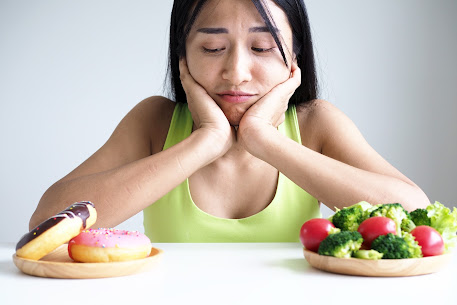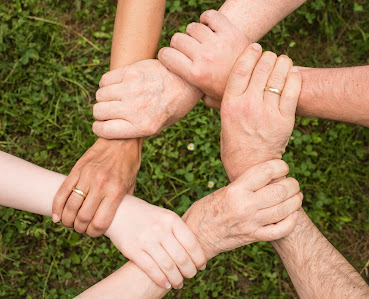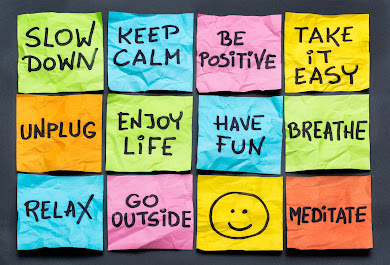Weight control🌵 and Lifestyle Medicine🌿 Part 6 - Stress🙃
There is a long history of discussions around stress, also the effect it has on weight control. It is therefore important to point out the brain is neuroplastic, that means it can keep learning for the rest of our life, given the healthy foundation to do so. Many of the eating styles we have adopted over our lives can be effectively modified by changing our habits. Stress 😥can be defined as a state where homeostasis or balance in our neurophysiological state ceases to exist. Some of you may be regular meditators🧘♂️, taking some time out each day or with frequency to help with creating a more relaxed state, this can have a huge positive effect on lowing stress levels. More to the practice mindfulness-based stress reduction later.
When we are highly stressed, cortisol adrenaline and noradrenaline levels rise. This leads to stress levels increasing. High levels of stress can lead to a fight flight response taking place. This can make you feel anxious and distracted; if it is left unchecked, can increase our risk of chronic diseases such as obesity and Type 2 diabetes, and make achieving good weight control more difficult.
So, if we fail to keep our stress levels down, what can happen🤔? For different reasons including intrinsic states of mind and extrinsic environmental factors, stress causing variables can disturb our balance⚖️, including but not limited to effects on our eating patterns and choices. Where diet is concerned, stress encourages us to reach for the very type of eating that is unfavourable for our health which includes:
•
Reaching for high fat
food🌭, including saturated
fats and trans fats
•
Eating more take away
food and highly processed/ultra processed foods 🍟
•
High sugar content
foods 🍩 🍭
•
High carbohydrate
foods
• Binge eating, where we consume much more food than we require
Sometimes stress related eating can be tied to comfort food eating styles. Sometimes these may be linked to childhood ways of viewing food. Anyone who remembers being strictly told you must eat your veggies 🥦 (which you truly may not have wanted if you were not hungry), and afterwards you would be allowed to have some lovely ice-cream 🍧! (The reward system). You may wish to share some additional examples of this type of situation. Have a look at the list of foods under the above eating styles. You will notice that they are more than often calorie dense foods, that is they are much more highly concentrated sources of calories per gram than fruit 🍇 and vegetables 🥕, and often higher in salt, fat and sugar.
Some of the recommendations I will make for relieving stress can be valuable to implement into your daily routine. Your first reaction may be to wonder how you can find the time to do this. We need a routine that allows us to ameliorate stress. This means lifestyle changes to replace stress with a relaxation response. Consider these options:
- ·
Mindfulness based
stress reduction. This can be in the form of walking🚶🏽 in nature 🏕, doing some
meditation of mindfulness breathing, or a yoga 🧘 class.
- ·
Taking up exercise
and increasing activity levels. You may choose walking, swimming 🏊 or cycling 🚴. You may spend less time sitting 🪑 in the office or in front of television or the computer
and replace this time with weight bearing activities, such as standing up work
station.
Here are some other examples of situations that may also be causing you additional stress, and suggestions to address these stressful situations:
- ·
Decrease time spent
with people 😒 who
create more stress in your life. If this is in the workplace, consider
addressing this with management or looking at working in a less stressed
environment.
- ·
Keeping a gratitude
diary 🗒 to
count your blessings throughout the day.
- ·
If you are being
bullied in a workplace, classroom or relationship, decide to have this
officially acknowledged and looked into.
- ·
If you are
experiencing pain from an injury or medical condition, have it assessed, also a
program put in place to treat it. This includes emotional pain that may be
caused by a relationship breakdown or bereavement over the loss of a loved one.
- · Remember stress can be caused by environmental influences. Excessive noise, heat, cold, global unrest, and crime fear are examples of these stressors, and must be considered.
All these above examples of stressful situations have
the ability to change our dietary🍲 habits, activity 🚴🏽🤸🏽
🧘♂️
levels, sleep 💤quality, alcohol 🍷 or
other substance use, social integration 🤼♀️and level of positive
😇 thinking in our day.
Consider attending some counselling or Psychologist visits to discuss any
issues that may be part of the stress that you are feeling.
In summary, I believe it is quite common for us to tolerate higher levels of stress in our lives than we should. It is easy to pass it off as something that everybody has to put up with. You do not have to think this. Isn’t it better to think that everybody can put up with it if they want to, but I personally have the right and the opportunity to lower my own stress levels. That way of viewing stress allows you to be able to lower the level of stress in order to decrease your risk of chronic diseases development. See you on our next blog – Weight control and Lifestyle medicine Part 7 – Social connection 🤽🏼.
References
1.Manzoni GM, Pagnini F, Gorini A, Preziosa A,
Castel-nuovo G, Molinari E & Riva G 2009. Can relaxation training
reduce emotional eating in women with obesity? An exploratory study with 3
months of follow-up. J Am Diet Assoc 109 1427–1432
2. Xenaki N, Bacopoulou F, Kokkinos A, Nicolaides NC,
Chrousos GP, Darviri C. Impact of a stress management program on weight loss,
mental health and lifestyle in adults with obesity: a randomized controlled
trial. J Mol Biochem. 2018;7(2):78-84. Epub 2018 Oct 3. PMID: 30568922; PMCID:
PMC6296480.
3. Jillon S. Vander Wal, The relationship between body
mass index and unhealthy weight control behaviors among adolescents: The role
of family and peer social support, Economics & Human Biology, Volume 10,
Issue 4, 2012, Pages 395-404,
ISSN 1570-677X, https://doi.org/10.1016/j.ehb.2012.04.011.
4. Frayn, M. and Knäuper, B., 2018. Emotional eating
and weight in adults: a review. Current Psychology, 37, pp.924-933.
5.Scott, C. and Johnstone, A.M., 2012. Stress and
eating behaviour: implications for obesity. Obesity facts, 5(2), pp.277-287.
6. Jáuregui-Lobera, I. and Montes-Martínez, M., 2020.
Emotional eating and obesity. In Psychosomatic medicine. IntechOpen.



Comments
Post a Comment